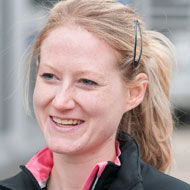Why resilience matters

Rosie Allister explained that while it is not necessarily safe to fail in veterinary practice, there are things that can be done to limit blame.
A panel of experts discussed the subject of resilience and why it matters at the VPMA and SPVS Congress in Newport today (27 January).
Chaired by GP and broadcaster Dr Radha Modgil, the speakers included performance coach Andy McCann, sports psychologist Jamie Barker, and veterinary surgeon Rosie Allister.
The discussion, which looked at how to build resilience in the workplace, offered insights into how the speakers dealt with overcoming resilience in their fields.
Andy McCann is one of the UK’s top performance coaches. Working across an array of different sports, Andy supports international teams and coaches in their preparation to compete at events like the Olympic games.
Andy began the session by referring to a study by Nisbett and Miyamoto on how we see and think. He reminded delegates that we all have different perspectives and that the information we might be drawn to, might not be the most important thing.
Dr Jamie Barker, an associate professor of applied performance psychology, spoke about how delegates can use performance psychology to develop resilience in practice. He explained to delegates how manage self-belief, how to control what is controllable, how to focus on gains (not losses), and how to develop and be part of a strong and supportive team.
Dr Barker described a series of exercises that he has used on athletes to bring about focus and a sense of control over difficult situations. One exercise, he explained, is to simply write 'me' in the middle of a sheet of paper and write around it factors that can influence your performance. "The closer the factor is to 'me', the more control you have over it," he said.
Later in the session, delegates heard from veterinary surgeon Rosie Allister, who has studied mental health and wellbeing within the profession. Rosie’s studies focussed on building resilience in undergraduates to help them cope with the stresses of clinical practice.
Resilience is all about having the motivation to succeed, but being able to cope with failure when it does happen. Rosie explained that while it is not necessarily safe to fail in veterinary practice, there are things that can be done to limit blame. Her ideas include: a safety check-list for surgery; an opportunity to reflect on mistakes; having support from the clinical team, and supporting a new vet's first mistake.
Dr Radha Modgil echoed Rosie's comments, adding that there must be clear distinctions between blame, guilt and fault when something does not go quite to plan.



 The Veterinary Medicines Directorate (VMD) is inviting applications from veterinary students to attend a one-week extramural studies (EMS) placement in July 2026.
The Veterinary Medicines Directorate (VMD) is inviting applications from veterinary students to attend a one-week extramural studies (EMS) placement in July 2026.